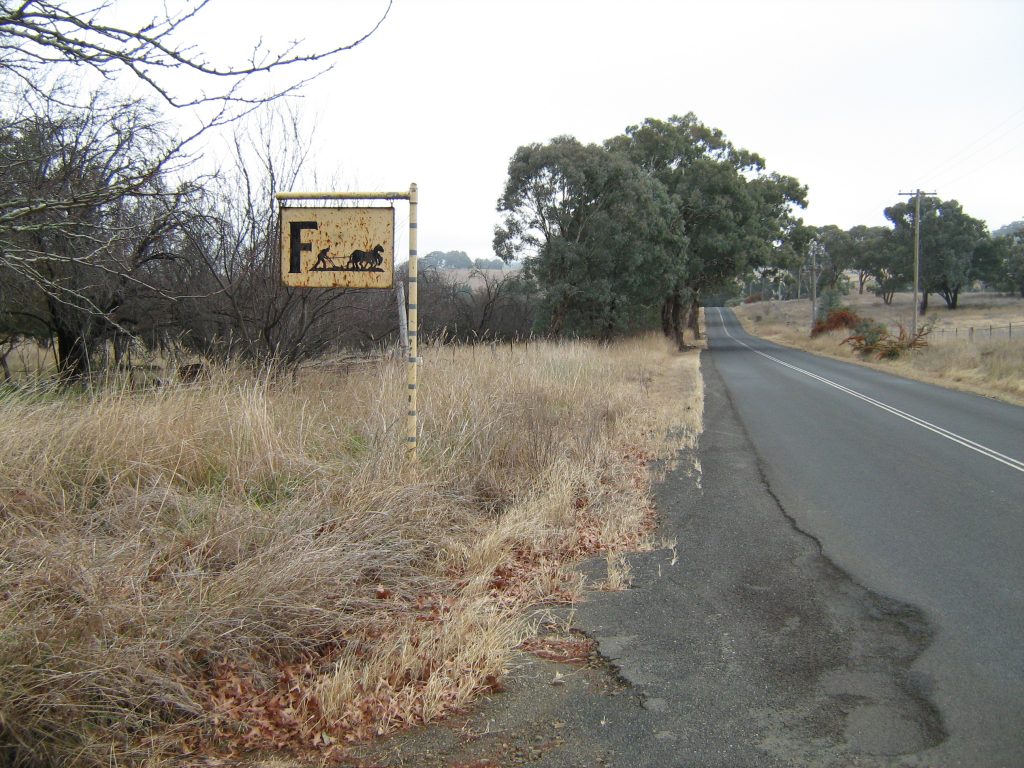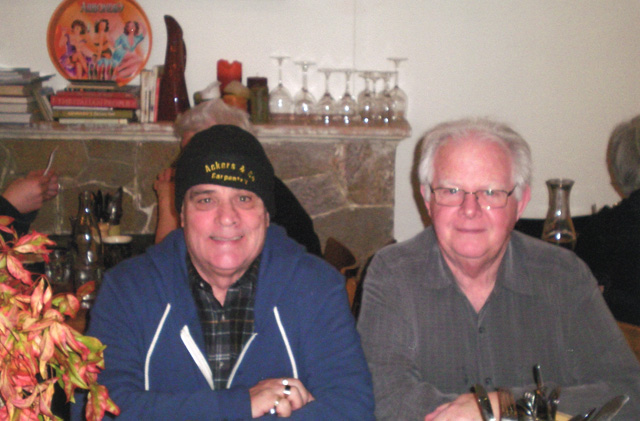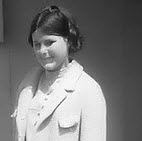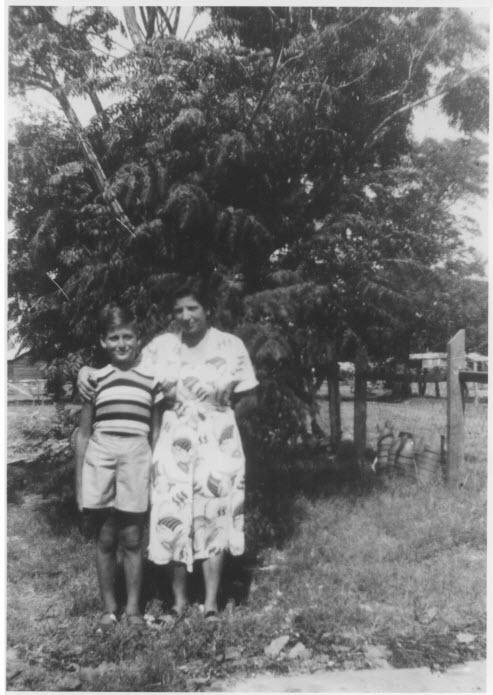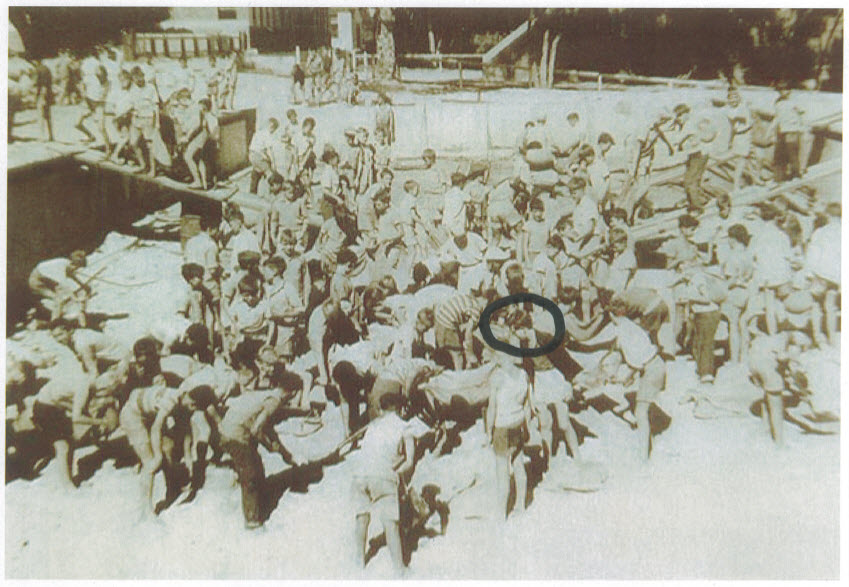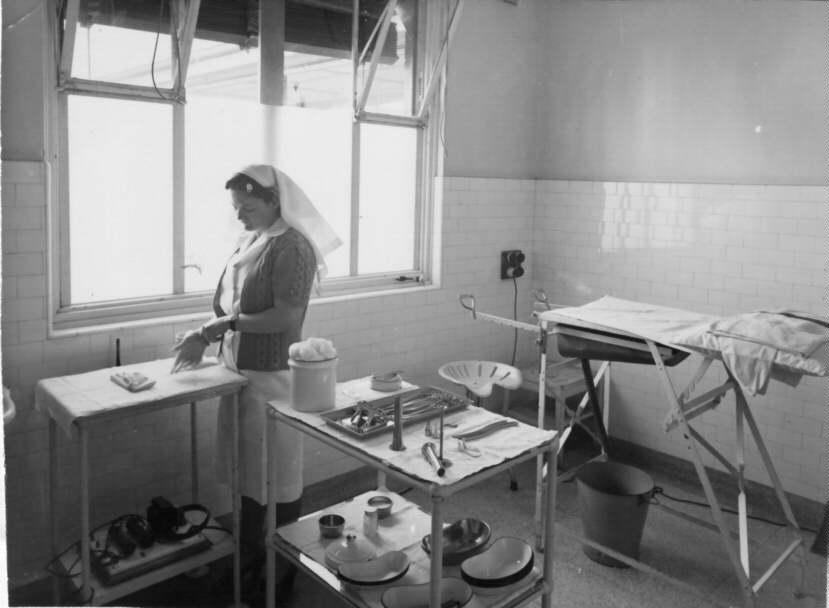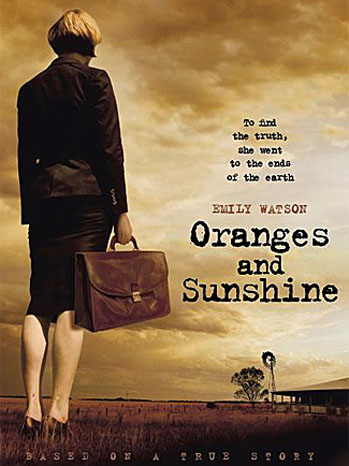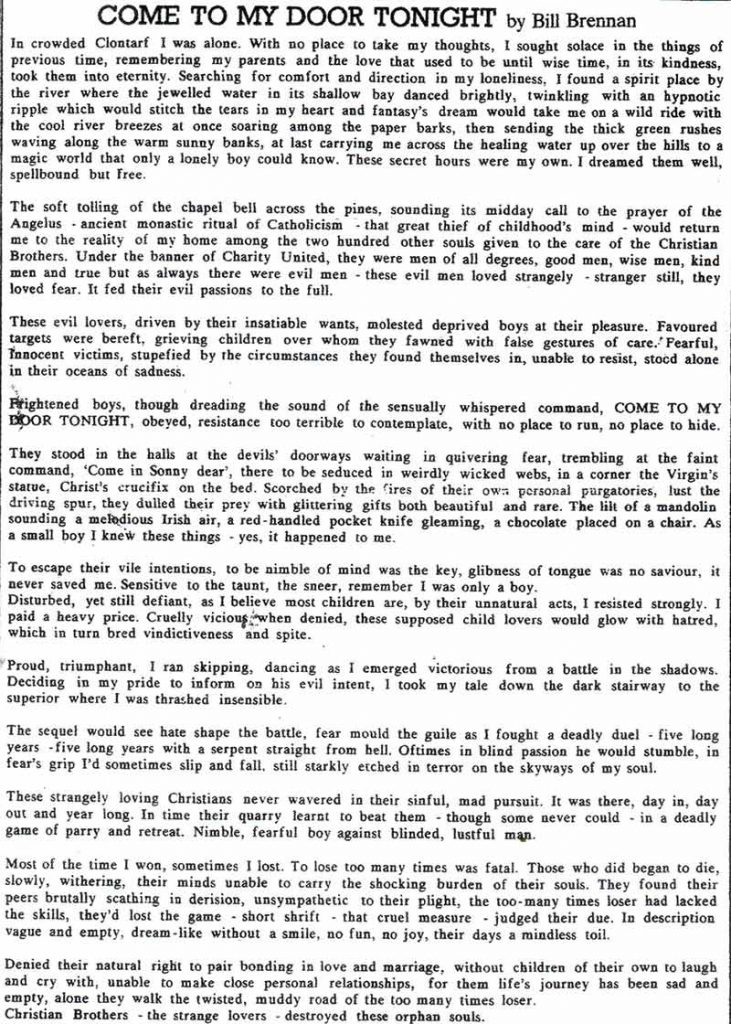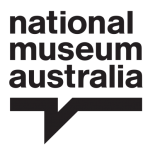Diane Mancuso shares two stories about growing up in a large Irish family in the suburbs, time spent in Bidura children’s home and beyond. Diane has also written a poem, ‘Billy Billy’, about her brother who was also in ‘care’ and later died on his birthday.
Diane, also known as Eileen Kennedy, penned ‘Billy Billy’ about her brother, who spent time in Royleston Boys Home, Glebe, NSW. You can also read her creative writing below in ‘Just a Number’ and Born to the State’.
Billy Billy
Do not slip away
Please Please
Stay with me another day
Where have you gone my brother?
You had not begun to live
It was before your time
He took you to live with our mother
9th April you were born
35 years later I would mourn
No! They did not see your pain
In your anguish and your sorrow
Drugs became your way of life
For you there will be no tomorrow
Billy Billy
I love you so
Please please do not go
One hit too many
They found you dead in a back street alley
The road was too long
It was too much to carry the load
Daddy Daddy loved us all
He was on the wrong side of the law
Mamma Mamma
Did her best
I pray you are now at rest
Billy Billy
Do not slip away
Please please
Stay with me another day
The children’s court decided our fate
They took us all
You cried and cried when you were told
We were all sent to Juvenile Hall
As children and later as adults we are told not to hate
Torn apart and sent along different paths
Mamma’s heart broken like shattered glass.
Suffer the little children who did no wrong
Ignorant are they!
Who say forgive them they know
Not what they do
Where were they when I held my brother’s hand and
Wanted him to stay
In and out of foster care
We grew up with more than our share
Billy Billy
Do not slip away
Please please
Stay with me another day
They failed!
Yes! Suffer the little children
But if I can change it in some small way
Billy Billy
Never fear
I remember and I am here
Your life was not in vain
For I will be here for that day
Billy Billy
My sweet brother we are separate
But never apart
For you are always
In my heart
copyright 2011 Diane Mancuso/Eileen Kennedy
Just a number
1962 was the year the NSW State Government destroyed my family, separating my brothers & sisters for ever. In 1962 what they did can never be repaired or forgotten. My Mother had six children the youngest was five yrs old. My father was languishing away in prison. My mum could not support her children financially. The State decided it would be best for our family if they took her children & threw them into Orphanages for kids whom they had deemed to be neglected.
Bidura was where my elder sister Yvonne & I were kept captured whilst my younger sister Kathleen I never found out which Goal she went to. My two brothers Marty who was eleven Billy who was 18 months older than me at nine went to Royalston down the road from Bidura.
It would be ten years before I saw any of my family again, we never recovered as a family. My sisters became strangers to me also my brother Marty who was always in & out of prison. For some unknown reason I managed to keep a loose relationship with my brother Billy whom I had always been close to.
In 2009 I stood with all of you homies at Canberra & listened to Kevin Rudd apologize & Barry O’Farrell. I heard people speak about how they felt if or what had been the words that had helped their road to recovery their pain of the past. I have asked myself ‘Did I feel any different after the apology?’ And for me? Yes I am glad we were finally recognized for what we all went through. Finally Australian people would be aware that it was not just Indigenous families that had so shockingly been removed & forgotten about. That we were believed & vindicated in what we all tried so hard to tell our friends, etc Who mostly did not believe us. So yes it was a good feeling though even today people are still in denial of our treatment at the hands of the State.
Though I wish I had a forgiving heart but I do not. For just maybe, maybe my brothers would be alive today instead of both in their graves much too early from drugs. –Physically drugs– but I believe it came from their horrific childhoods. My brother Billy told me about the rapes he had endured in goal. Though the way he spoke about these hideous crimes, against him, was to have me believe he was commenting on the weather. He wore his Armour like we all do to prevent anymore pain ..
Forgive?, I don’t think so. Too much despair, inanity, nightmares, desperation to want to fit in to be loved, wanted, cared for … it’s like the song ‘How can you mend this broken heart?’ It is impossible to repair, to forget my Mothers tears, my brothers fears. ‘Sorry’ just does not do it for me! Forty, fifty years Too late. Too late, You can’t fix something that they shattered into pieces. It was all a little too late so that day as I stood listening to Kevin Rudd that day I realize that it was not Kevin’s fault but it was not mine either or my Family.
My Brother did not set the world on fire, he was not well known (maybe to the police), he did not have any social skills, it was difficult for him to talk to people. There will be a lot of us who will not be acknowledged now or in our life time. The majority of us will just put one foot in front of the other or crawl & hope for the best. We are not celebrities but what we are — we are survivors, who lived through & came out the other side. We conquered tremendous adversity, inhumane treatment, brutality, solitary confinement. What sane person takes a twelve yr old & puts them in a black hole? These Orphanages were worse than prisons. We were children! Was this their way of rehabilitation to a lost child?
Our identities stolen, is it any wonder that we have to struggle with who we are? I had so many different names growing up I could travel the world under an alias with no problems! But with my luck I would be caught & it would be solitary for me again, but they were the ones who had given us all these different identities, no wonder we suffer from identity crisis. What was left to take? They whipped us, belted us, abused us, but they could not break us nor take our memories away from us. So I say for your family whom may not be here to speak for themselves, we have to take up the reins & never let them forget what they done to innocent little children. Makes me wonder how many & whose palm was being greased to justify their behavior? Is it any wonder that many of us became uncontrollable with no role model, no love, no human warmth? And is it so surprising that many turned to drugs & alcohol to block out the sheer pain of remembering how barbaric & cruel these so called authorities who it was their job to care & nurture us?
It is remarkable that we even survived & forbid that we could even have a promise of life that bought no pain! As disturbed as our childhoods were I am sure that you stumbled through like I did trying to shield & keep your balance, with no life skills. With no direction, no guidance I became an expert at when discussing childhoods with anyone.
Many, many times on my journey I wrestled with my horrific upbringing, though no one would ever guess my despair dueling with my demons day to day. My mask rarely slipped, what other people thought was a tough upbringing I thought was Idyllic, that is not to say they were not deserving of sympathy or my thoughts it was just how it is.
But as I trowel over my past I believe if I had not experienced each & every interminable situation I would not be the determined, strong, willed woman that I am today. Nature verses nurture, is not for me to question, though it remains an interesting topic, one I believe that I will never have the answer too. I embrace my flaws, as this is what makes me realize that there is no one person who is without their own faults.
Corruption, incitement of power the provocation of abuse towards children can ever be stamped out but we as part of our legacy is to shed our masks & retell our stories so that history can never be repeated.
Each & every one of us took our different paths.
Although, my brother Billy did not leave a fortune behind, nor a child of his own to inherit his special qualities —He did not leave foot prints in the sand! He left his imprint on my heart & my mind I remember my brother & I am here to tell what the brutal system did to Him You & Me.
It was a privilege to call you my brother Billy.
copyright 2011 Diane Mancuso/Eileen Kennedy
Born to the state
October was the second month of spring the cool moist air had turned into the promise of a warm summer to come.
The tiny buds of flowers were opening to the warm sun, fresh green shoots of grass glistened in the early morning sunshine. If one took the time to stop and savor the scent, to see with virgin eyes, to hear the birds chirping in their safety haven nestled in an old oak tree. One would decide that this day was full of wondrous new beginnings of hope, faith of another tomorrow.
On this day in the outer suburbs of Sydney, the day had lost its heat, dusk had settled over the suburbs. The first lights could be seen from the roads, there were familiar sounds of children laughing and arguing simultaneously. Pots and pans clattering as mothers tried frantically to cook dinner, bathe children and supervise homework, which they did with remarkable ease as these were times of large families when mothers stayed home and fathers went to work, there was no confusion as to which role one played.
The families in this neighborhood had no luxuries. They came from good Irish catholic stock or depending how you looked at it they were quick to temper and quick to smile. Many of these families battled to put food on the table for their brood. Martin Kennedy was such a man who found work when he could. He had a wife with four children and one due any day to provide for.
He was a tall man six feet to be exact but not an ounce of fat on his solid frame. He was a striking man. He looked younger than his thirty four years with jet black hair, and hazel eyes. A smile to melt any woman’s heart but with an Irish temper to match his steel black hair. He had just finished a twelve-hour shift as a bus driver, his muscles ached and he felt tired and stiff from sitting all day.
He walked with an air of confidence and pride in one’s appearance as he put the key in the door he could hear the racket of children squealing and of muffled laughter. What’s for dinner? He inquired of no one in particular. He didn’t expect an answer, he picked up his youngest son ‘Billy’ whom was eighteen months old. Billy was a ‘Daddies’ boy and loved nothing better than being with his Dad.
Next in age was Yvonne, named after her mother at three she had an impish grin and pale hair with blue eyes the color of topaz inherited from her Mother. She ran to her Father and planted a sticky kiss on his stubble cheek.
Martin ‘junior’ was the eldest boy at seven he was already gangly all elbows & knees his mop of fair hair fell over his pale freckled face.
Colleen was his eldest daughter. At nine she had more the Irish coloring of dark hair with brown eyes. As in large families Colleen helped take care of her younger siblings.
After a few minutes he disentangled himself from eight pairs of arm’s and legs and went in search of his wife he headed for the kitchen the children trailing behind. His wife was not in the kitchen, his stomach protesting loudly that it was past dinner. Colleen’s voice rising above the din of the others to inform her Father that her Mother was in the bedroom ‘She’s sick Daddy’ she said trying not to show any fear but her voice had a tremulous tone to it.
He made his way down the narrow hall to their bedroom, as night was descending quickly he could just make out the outline of the bed. As he stealthy approached towards the narrow cot, a small moan escaped from his wife. He bent over her miniature doll like body, as he was tall and strong she was small and delicate.
He put the lamp on. Yvonne lay in a fetal position her ice blue eyes glazed over with pain he touched her honey colored hair to find it damp with sweat. After four children there was no need to ask, ‘How far apart are the contractions’ he whispered? ‘Don’t know bout ten minutes’ she gasped.
‘Colleen’ he shouted. His daughter who had been standing in the doorway came forward ‘Yes Daddy’. ‘I have to go and pick up Nurse Fisk. Look after your Mother till I get back’.
He grabbed his keys and rushed out to his old 1940’s Dodge he put the key in the ignition it coughed and spluttered in protest Martin cajoling and swearing finally the motor kicked over, reversing quickly as the first drops of rain fell.
Nurse Fisk lived about ten miles out on the Highway. By the time Martin pulled into her driveway the rain was pelting down. He ambled from the car ran up the sidewalk by the time he was banging on the door he was soaked to the skin but he either did not notice or did not care.
The door was answered by an elderly stoutly women with Grey hair and an air of no nonsense about her. She took one glance at his disheveled appearance and said ‘just a moment I will get my bag’. Martin had left the car running not wanting to chance the old rust bucket would not start for him. He overtook cars, breaking the speed limit, careening around bends the wind screen wipers working furiously to keep the rain at bay he peered into the dark night anxiously trying to hurry them along.
Thirty minutes later but for him felt like an eternity pulled into his street. He could hear the muffled screams as they approached the door he inserted the key with trembling fingers. Rushing to his wife’s side he could see her fragile body wracked with pain.
Nurse Fisk was already prodding and pushing the huge bulge with expert hands sure in her knowledge in having delivered hundreds of babies. ‘There’s no time this baby is in a hurry to enter the world’. Martin stood against the wall with its cracked, peeling paint and looked on anxiously. ‘Push! Push!’ she yelled. Yvonne each time exhausted herself and was sure she was not to live through this agony. She had already birthed four babies but could not remember them being in this much pain.
After an almost inhuman effort Nurse Fisk held up an unnaturally still infant in her hands. ‘It’s a girl’ she said. The nurse held the baby by the ankles which was practice in those days and swung her around. She wasn’t breathing; by the fourth go they heard the lustiest cry. It was as if her cries were to protest at being wrenched from her protective envolope. Rebelling at having being swung around in such an undignified way.
Throughout the ordeal feeling quite helpless my Father stood upright against the ancient, chipped doorway, he was not aware he had been holding his breath until relief flooded through him, & fighting tears that glistened in his eyes he blinked them away before.
He gingerly walked over gazing down at his daughter he put his finger in the her tiny fist. She gripped his finger with amazing strength, & with her turbulent stormy blue eyes that stared at him he thought with an accusatory wisdom.
They named her Eileen she was a bonny baby at eight pound eight ounces with dark down and her eyes as bright as fire & the color of the ocean on a stormy day.
My Mother had one other baby two years after my birth she was named Kathleen. She was a mirror image of my eldest sister Colleen as I was a smaller clone of my sister Yvonne.
I do not recall my earlier years images flash in and out some remain at the fringes of my mind. There is a tall, rugged handsome man lifting me into the air and landing me onto the kitchen table to teach me how to tie my shoe laces and then sweeping me into his strong arms. The backyard was enormous with chooks and a goat feeding off the sparse grass patches that kept them from starving. My siblings and I took great delight in trying to ride on the back of the goat but the animal had other ideas and got his own back when he would buck till we all fell off landing on all fours. Trying but failing to keep our dignity in tact we would mount him again and again much to our disappointment we never did tame him.
My eldest sister seemed to take on the role of mothering us little one’s. Later on I was to learn my mother was often passed out during the day from her addiction to diazepam. This was of great concern to my Father and he used his bus route to pass our house and run in to change my nappy and quickly return to his waiting bus.
My memory becomes a little clearer when we all moved to the outer suburb of Granville. The house was in a shambles, dilapidated and in dire need of painting and repairs. The windows were all broken the lounge room, which doubled as my sister’s and my bedroom sleeping in one bed. Whilst my brothers slept in a closed in veranda off the kitchen to the rear of the house.
I rarely saw my Father the only recollections is of being woken out of a sound sleep by my Father’s voice singing ‘I have the whole wide world in my hands’. Strange how something so insignificant can have intricate details lodged in my memory. My favorite toy was a gollywog with a zip in the side and my father used this to store his gun. I guess he thought it would be a safe place.
It was a rough neighborhood the neighbors’ son bashed my little sister over the head with a dirty wooden stick. It took six nurses to hold her down whilst they shaved her hair off so infection would not set in. I believe this event was instrumental and a contributing factor in my sister’s life further on through the years my sister developed extreme emotional disturbances and instability.
There was a creek down the end of our street there was a rope that dangled down from a footbridge. My brothers would grab the rope and swing from one side of the bank to the other side. I smile at this memory as my brothers were assured of great entertainment when with out fail I would always get stuck in the middle of the creek they would break out in peals of laughter at my distress much to my annoyance.
Innocent as only children could be my brother Billy and I would vow to marry when we were all grown up Billy with his rich, dark curly hair, impish grin and mischievous eyes. was a strange little girl.I had compulsions which were really rituals that were to be repeated on a daily basis.
copyright 2011 Diane Mancuso/Eileen Kennedy

